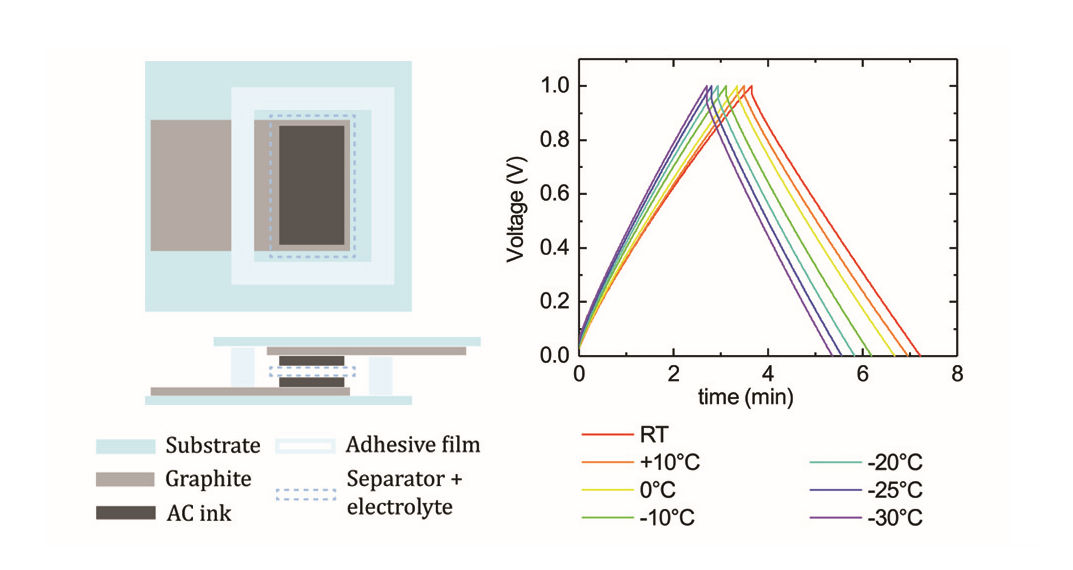This contribution examines the potential of printed supercapacitors in sub-zero conditions for temporary energy storage in energy autonomous systems. Aqueous electrolytes as is are limited in their capability to withstand sub-zero temperatures and in literature the formerly reported alternatives for an organic anti-freeze typically pose potential health hazards to the end user. In this study we report the performance of a glycerol and water solution with NaCl salt as an electrolyte in functional supercapacitors at temperatures ranging from room temperature to −30 °C at various concentrations. Glycerol is a non-toxic anti-freeze alternative, suitable for safety critical applications such as monitoring food and drug safety in decreased temperatures or wearables in cold climate conditions. We demonstrate good capacitive performance all the way to the coldest temperatures studied and the equivalent series resistance is only mildly affected after optimizing the electrolyte concentration. The results show great promise for a user safe alternative in expanding the operational temperature range of the printed supercapacitors, without compromising the good electrical performance.
Non-toxic printed supercapacitors operating in sub-zero conditions

Resent article from our group by Anna Railanmaa et al. was published in Scientific Reports.
